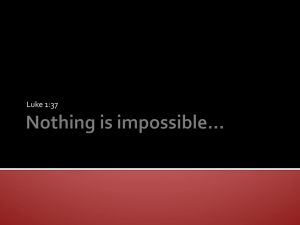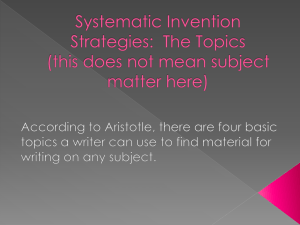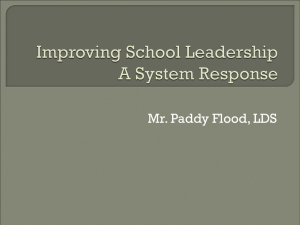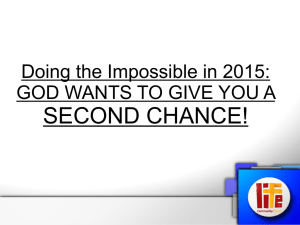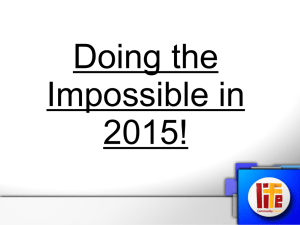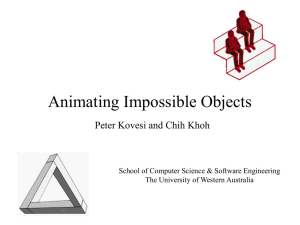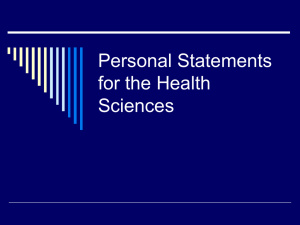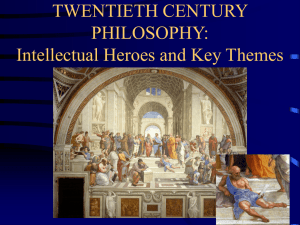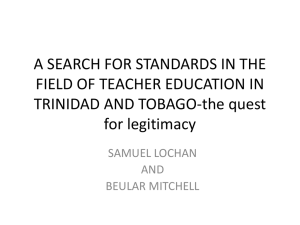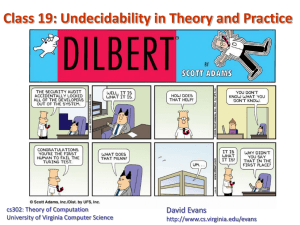Researching the Impossible?
advertisement
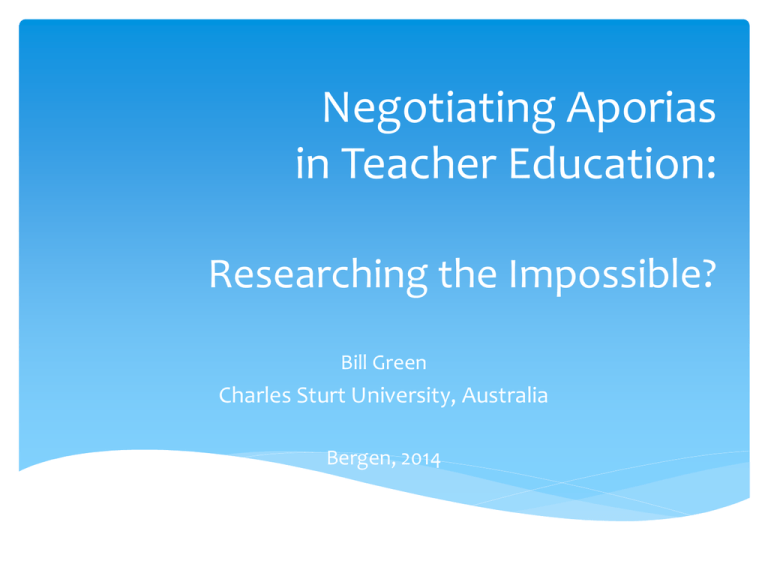
Negotiating Aporias in Teacher Education: Researching the Impossible? Bill Green Charles Sturt University, Australia Bergen, 2014 Researching the impossible? teaching as “the art of the impossible” (Taubman, 2014) education as an “impossible profession” (Freud, Britzman) teaching the impossible profession? Teaching the Impossible Profession: Alexander Mackie and the Project of Teacher Education The battle for teacher education; or, Struggling for the soul? increasing regulation & control distrust of teachers & teacher education, bordering on contempt a enduring problem of governmentality populational rationality, etc. a ‘mass’ profession vs a ‘quality’ profession? organic professionalism vs bureaucratic professionalism Struggling for the soul of teacher education? the ‘subject’ of teacher education or rather, the body-subject its very character – its soul… i.e ethical/moral & intellectual formation hence, a matter of ethical & political import Re-thinking ‘practice’ professional practice, learning &education practice theory & philosophy the ‘primacy of practice’ thesis a long philosophical heritage philosophical-empirical inquiry Practice theory – “… a ‘family of theories’ that challenge individualist and cognitivist understandings of practice as the application of theory with understandings of practice as material, embodied and orchestrated arrangements of ‘doings and sayings’ […], complexly located in space and time […].” (Lee & Dunstone, 2011: 485) “Professional practice … consists of speech (what people say) plus the activity of the body, or bodies, in interaction (what people do, more often than not together) – a play of voices and bodies. In this view, practice is inherently dialogical, an orchestrated interplay, and indeed a matter of co-production.” (Green, 2009: 43) A (different) practice turn? The ‘Primacy of Practice’ Thesis PHRONESIS PRAXIS APORIA A reformulation? knowledge action decision The ‘Primacy of Practice’ Thesis PHRONESIS PRAXIS APORIA Thinking aporia Note: this “old, worn-out Greek word … this tired word of philosophy and logic” (Derrida, 1993: 12) “… aporia, the undecideable moments in which the teaching subject is faced with an irreconcilable yet urgent decision” (Janzen, 2013: 382) “… the ghost of undecidability haunts every responsible decision.” (Wang, 2005: 51) Related concepts impossibility undecidability decision responsibility “… it is because responsibility is infinite that the decision is always undecidable.” (Critchley, 1999: 108) Related concepts impossibility undecidability decision responsibility “… it is because responsibility is infinite that the decision is always undecidable.” (Critchley, 1999: 108) “You are obliged ceaselessly to act” (Anna Freud, [1930] 1974: 74). “There is no way out of aporia, but in this impasse, active engagement with the impossible becomes imperative for creating new forms of life.” (Wang, 2005: 47) The ‘impossibility’ of teacher education “Since school is an institution that is constantly reformed, the teaching profession is a profession characterized by an almost constant discontent with teachers. The ‘desirable’ teachers are always different from existing teachers.” (Ingrid Carlgren, 1998: 317) “… the inherent impossibility of education—we can never know or predict what someone knows or thinks— and it turns that impossibility into an invitation to study.” (Peter Taubman, 2014: : 16) Thinking (about) teacher education “… an unresolvable paradox at the heart of the project of teacher education – something that is, indeed, constitutive of that project, that enterprise, that undertaking.” (Green & Reid, 2010/2015 – in preparation) “With problem one knows what to do; there is a method for working out the puzzle. Aporia, however, Derrida defined as ‘the point at which the problematic task becomes impossible’…” (Gregory Ulmer, 2012: 310 ) Conclusion researching (im)possibility negotiating aporias teaching & teacher education A theoretical & philosophical challenge? Selected References Deborah Britzman (2014) “The Other Scene of Pedagogy: A Psychoanalytic Narrative”, Changing English, Vol 21, No 2, pp 122-130. Ingrid Carlgren (1988) “Where Did Blackboard Writing Go?”, Journal of Curriculum Studies, Vol 30, No 6, 613-617. Jacques Derrida (1993) Aporias, Stanford, California: Sanford University Press. Simon Critchley (1999) Ethics–Politics–Subjectivity, London & New York: Verso. Melanie D. Janzen (2013) “The Aporia of Undecidability and the Responsibility of Teacher”, Teaching Education, Vol. 24, No. 4, 381–394. Peter Taubman (2014) “The Art of the Impossible” Professional Study and the Making of Teachers”, English Journal, Vol 103, No 6, pp 14-19. Gregory Ulmer (2012) Avatar Emergency, Parlor Press. Hongyu Wang (2005) “Aporias, Responsibility, and the Im/Possibility of Teaching Multicultural Education”, Educational Theory, Volume 55, Number 1, pp 45-59.
